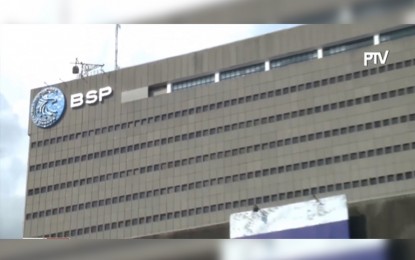
MANILA – Filipinos are now more aware of the mechanisms against cybercrime as shown by the number of complaints submitted to the Bangko Sentral ng Pilipinas (BSP).
In a virtual briefing Thursday, BSP Governor Benjamin Diokno said the central bank’s Consumer Protection and Market Conduct Office received about 20,000 complaints last year alone.
Diokno said around 13 percent of these complaints involve fraudulent or unauthorized transactions of various financial products and services like deposit, credit card, electronic money (e-money), and remittance.
“We think that the volume of complaints we received is an indication that more people are now more aware of the BSP’s consumer assistance mechanism,” he said.
Diokno said “these complaints were referred to in the respective financial institutions for appropriate handling and response.”
He said these cases are among the reasons why monetary officials are pushing for the passage of the proposed measures that will further protect consumers.
These measures include the proposed Financial Consumer Protect Act (FCPA), a consolidated version of Financial Products and Services Consumer Protection Act which was passed on third reading on June 2, 2020 in the House of Representatives.
Diokno said this bill “enhances the authority of regulators to protect the interest of financial consumers.”
“This is seen to instill discipline among financial service providers, boost public confidence in our financial markets, and promote financial stability. We hope that this critical bill (will) be passed into law, especially with the prevalence of fraudulent activities related to financial consumers,” he added.
In 2020, more people used electronic channels for their financial transactions, among others, after the government imposed quarantine measures to address the rise of coronavirus disease 2019 (Covid-19) infections.
BSP data earlier released showed that volume of PESONet transactions jumped by a whopping 376 percent year-on-year to 15.3 million in 2020, while InstaPay transactions surged by 459 percent to 86.7 million.
These two facilities are clearing houses under the central bank’s National Retail Payment System (NRPS) program, launched in 2017 and 2018, respectively, targeted to help accelerate the BSP’s digital payments bid. (PNA)
